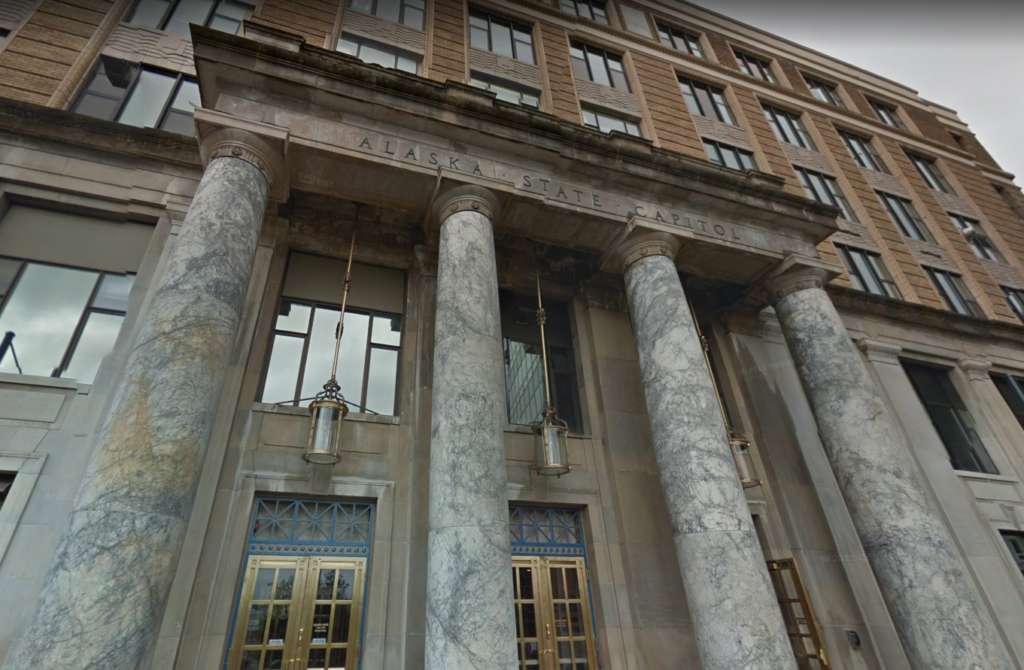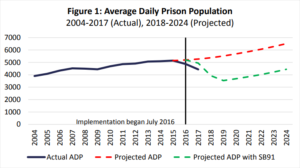
JUNEAU, Alaska –The state’s prison population is shrinking after years of rapid growth, saving Alaska millions in direct and avoided costs a year following the passage of sweeping criminal justice reform legislation. The legislation was developed and is currently being implemented with support from the Crime and Justice Institute (CJI).
In partnership with the Pew Charitable Trusts, CJI worked closely with lawmakers, prosecutors, defense attorneys, state officials, and community stakeholders during the development of SB 91, the Omnibus Criminal Law, Procedure and Corrections Act. Gov. Bill Walker signed the legislation in July 2016, seeking to rein in the surging prison population and corrections budget, and to address the fact that nearly two-thirds of people released from Alaska prisons were returning within three years.
The law seeks to focus prison beds on serious and violent offenders while investing in new programs and policies designed to reduce recidivism.
Passage of the reform bill followed a two-year process of data analysis, stakeholder meetings, public hearings, and review by the Legislature. CJI provided technical assistance during that process, and continues to support state leaders during the ongoing implementation process by providing training on evidence-based practices, helping agencies develop internal policies and procedures, and supporting the tracking and analysis of performance data.
While the full impact of the reforms won’t be felt for years, there are strong signs of progress one year into implementation, according to a newly published annual update by the Alaska Criminal Justice Commission.

Source: Alaska Department of Corrections
The prison population fell 9.4 percent, from 4,685 in July 2016 to 4,221 in July 2017, following passage of the law. With the reduction of 437 prison beds, Alaska avoided $3.8 million in annual prison growth costs and reduced operational costs, including $5.6 million in savings from closing the Department of Correction’s 500-bed Palmer Correctional Center.
The law also dedicated more than $25.5 million in fiscal years 2017 and 2018 to support recidivism reduction and implementation of new programs and policies, including substance abuse treatment in Department of Corrections facilities, support for individuals reentering the community after their release, and violence prevention programs. The largest share – $13.5 million – is being used to develop a new division within the DOC that will for the first time supervise defendants who are released while awaiting trial.
As a result of changes to the state’s drug and property laws included in the reforms, DOC admissions of individuals sentenced for non-violent misdemeanors fell 19.5 percent and admissions for non-violent felonies dropped 9 percent. Fewer admissions for non-violent offenses frees up resources to focus on those convicted of violent crimes.
The DOC has also updated its supervision practices by focusing more on high-risk offenders and changing how it imposes sanctions for technical violations of parole or probation, including drinking alcohol, missing or failing a drug test, or not reporting to a probation officer.
Pretrial reforms, the remaining key aspect of the law, will go into effect on Jan. 1, 2018. They include creation of a new pretrial enforcement division and implementation of a new pretrial risk assessment tool to help inform decisions about the use of monetary bond and other pretrial release conditions — both of which are tested practices that improve public safety and pretrial outcomes. CJI is supporting Alaska in the implementation of pretrial reforms, including assisting the state in developing and implementing a pretrial risk assessment tool based on Alaska’s system data.
The Alaska Criminal Justice Commission will continue to collect and analyze data to measure future progress of the reforms under SB 91.
CJI’s work providing implementation technical assistance to the state of Alaska is funded by the Bureau of Justice Assistance as a part of the Department of Justice’s Justice Reinvestment effort.